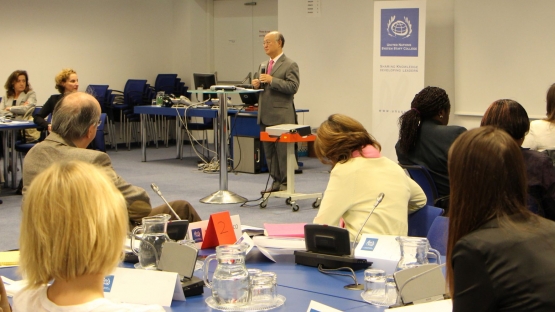One hundred staff from Vienna-based organizations (VBOs) and non-governmental organizations have participated in a three day event from 14 to 16 May 2013 to learn about evolving global development challenges and to discuss contemporary international development issues - in particular the post-2015 development agenda - in an inter-organizational learning setting. The event, a special United Nations (UN) Reflection Forum, was organized by the IAEA together with the United Nations Industrial Development Organization, the Comprehensive Nuclear-Test-Ban Treaty Organization, the United Nations Organization on Drugs and Crime and the United Nations System Staff College. Participants heard presentations and took part in high-level panel discussions on sustainable energy solutions and the post-2015 development agenda.
Inspired by the United Nations Summer Academy, held annually by the UN System Staff College, the UN Reflection Forum covered key areas of the post-2015 development framework, such as global governance, emerging new partners in development, and the rise of new centres of economic activity. Participants at the Forum also discussed cooperation within the international development arena as a foundation for sustainable development growth, and engaged in practical exercises on developing priorities and processes for the world we want beyond 2015.
Forum lecturers reflected on the effectiveness of the UN's development work and the role of partnerships in achieving UN goals. Many ideas were discussed, including global change and the need for new processes and solutions to share information, evaluate development assistance and improve transparency. Civil society engagement and the inclusion of major development players were an area of particular focus.
"The way we go about doing things needs to change. We need to move beyond aid, and talk about mutual cooperation", said Hanna Ryder, Team Leader for Global Partnership for Effective Development Cooperation in the United Kingdom's Department for International Development. "Global partnerships play a crucial role in effective development."
Fantu Cheru, Research Director at the Nordic Africa Institute in Uppsala, Sweden, emphasized "One model does not fit all. We need to learn from successful examples and adapt the experience according to the national framework." Cheru made a keynote presentation about the role of emerging partners, in particular India and China, in development in Africa.



